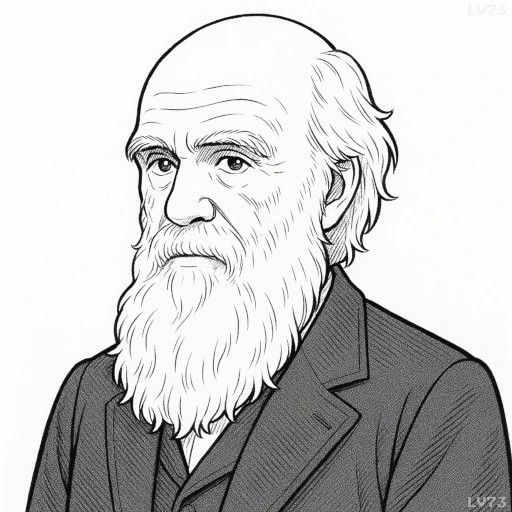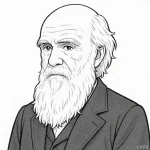“My mind seems to have become a kind of machine for grinding general laws out of large collections of facts.”

- February 12, 1809 – April 19, 1882
- Born in England (UK)
- Naturalist, geologist, biologist
table of contents
Quote
“My mind seems to have become a kind of machine for grinding general laws out of large collections of facts.”
Explanation
In this quote, Charles Darwin metaphorically describes his mind as a “machine” dedicated to analyzing and extracting general laws from the vast amounts of data he collected throughout his research. This reflects Darwin’s methodical and analytical approach to scientific inquiry, where his focus was on identifying broad principles or patterns from detailed observations. By likening his thinking process to a machine, Darwin highlights the intense, almost mechanical nature of his work, where raw data was processed to uncover universal truths about nature and evolution.
Historically, Darwin’s ability to synthesize large quantities of information was central to the development of his theory of evolution. His observations of species across different regions, his meticulous recording of facts, and his gathering of evidence all contributed to his ability to form general laws, such as natural selection. His work required not only gathering facts from various disciplines, including geology, biology, and zoology, but also the ability to see patterns that others might overlook. This synthesis of diverse data into a cohesive theory was a hallmark of Darwin’s genius and marked a turning point in the history of science.
In modern times, Darwin’s description of his mind as a “machine” for processing facts resonates with the way we approach scientific research today. With advances in data science, machine learning, and artificial intelligence, scientists now use powerful tools to analyze vast datasets and extract generalizable patterns from them. However, Darwin’s analogy also serves as a reminder of the human element behind scientific discovery. Despite the use of technology, the ability to synthesize and interpret data into meaningful laws or theories still relies on critical thinking and insight, qualities that Darwin himself exemplified. His method of transforming large collections of facts into overarching principles laid the groundwork for the way modern scientists approach the exploration of complex phenomena.
Would you like to share your impressions or related stories about this quote in the comments section?

